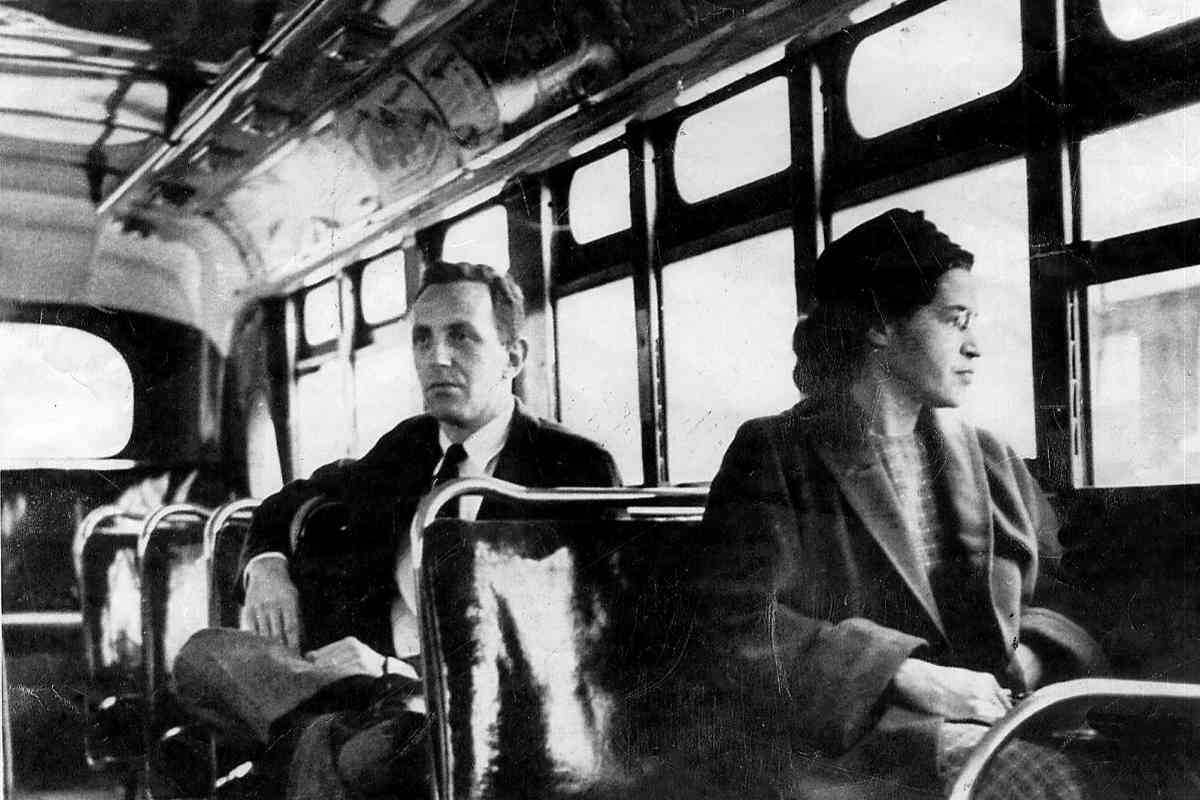The sad 60th birthday of Rosa Parks' milestone
Myths: Rosa Parks' house seeks to put down roots
There are women and women, but then there is
Rosa Parks.
Thanks to her, blacks in the United States had visibility.
After leaving on December 1, 1955 (it was 65 years old this Tuesday) from her working day as a
seamstress
in a shopping center in Montgomery, in the state of Alabama, she got on the
bus
that would take her home.
During the journey, she refused to give a
seat to a white person,
for which she was
arrested and punished.
The famous
mugshot
of Rosa Parks holding the number 7053 on the day of her arrest was the trigger for Edgar Nixon and an unknown Baptist pastor named
Martin Luther King to
organize one of the
most important
boycotts
in recent history of the country.
What was to be a Monday strike turned into a
381-day riot,
almost
financially ruining
the Montgomery bus company.
Of Montgomery's 105,000 residents, about 42,000 were black, who chose to commute by vans, bicycles, walking or carpooling.
As the
granddaughter of slaves,
Rosa was tired of blacks being considered
second-class citizens.
His grandfather always had a shotgun handy because members of the
Ku Klux Klan
lurked around and he walked to school while the whites took a bus to another purpose-built building.
She stopped studying as a teenager to
take care of her sick mother and grandmother.
Parks, on a Montgomery bus company bus similar to the bus he was riding on December 1, 1955, and in which he refused to give up his seat to a white person.
Rarely has a "no" meant so much.
In November 1956, the Supreme Court declared
racial segregation
on buses
unconstitutional
.
After that achievement he paid a high price.
Rosa and her husband, Raymond, were threatened,
insulted, black co-workers stopped talking to Rosa and
she was unemployed;
her husband was fired because he talked about Rosa despite the explicit prohibition to do so;
She could not find a job as a housekeeper and he was rejected as a janitor and they began to
accumulate so much debt
that they could not pay for the
drugs
to treat the stomach ulcers of the heroin in this story.
In 1957 she decided to
move to Detroit with her mother and her husband.
There Rosa continued her fight for national civil rights despite her great
economic precariousness.
At first, she found
odd jobs
at a hotel or as a seamstress in a factory, but after endless hardships, in 1965 she found work as a
secretary and receptionist
for Democratic Congressman John Conyer, in whose office she worked
until his retirement in 1988.
See this post on Instagram
Despite appearing in history books as one of the most important characters of the 20th century, his personal life left much to be desired.
She had become a
widow, she had no children, the psychological wear and tear
of achieving equality had taken a toll on her already delicate body and she was collecting a
paltry pension
that she could hardly afford to pay rent.
Helped by the community
Fortunately, her historic gesture did not go unnoticed by the higher echelons of Washington, who honored her in life as she deserved.
In 1996,
Bill Clinton
presented him with the Presidency Medal of Freedom and, shortly after, he received
the Congressional Gold Medal,
considered the highest civilian honor in the United States.
After suffering a
robbery and assault in his apartment, he
decided to move to a safer one.
The billionaire founder of the Little Caesars pizza chain, Mike Ilitch, took care of the expenses, but something mysterious happened when the owners of the building tried to
evict her
.
Afflicted with
progressive dementia,
practically without mobility and with visual impairment, she was about to be left on the street.
Neighbors, parishioners and other members of the community began to help her and, when her case was made public, the owners of the building chose to
pay her all the bills
in an act of cleanup.
After his
death in 2005 at the age of 92,
his body was veiled in the Washington Capitol.
She became the first woman and the second African-American person to star in this historic recognition.
Rosa Parks' performance obscures, in a sense, the famous phrase of Neil Armstrong after the human being first set foot on the Moon in 1969: "It is a small step for man, but a great leap for Humanity."
According to the criteria of The Trust Project
Know more
See links of interest
Last minute
TV programming
Spanish translator
Holidays 2021
Holidays 2020
Movies Today
Topics
Coronavirus
Lokomotiv Moscow - FC Red Bull Salzburg
Shakhtar - Real Madrid, live
Atalanta - FC Midtjylland
Atlético de Madrid - Bayern, live
Borussia Mönchengladbach - Internazionale

